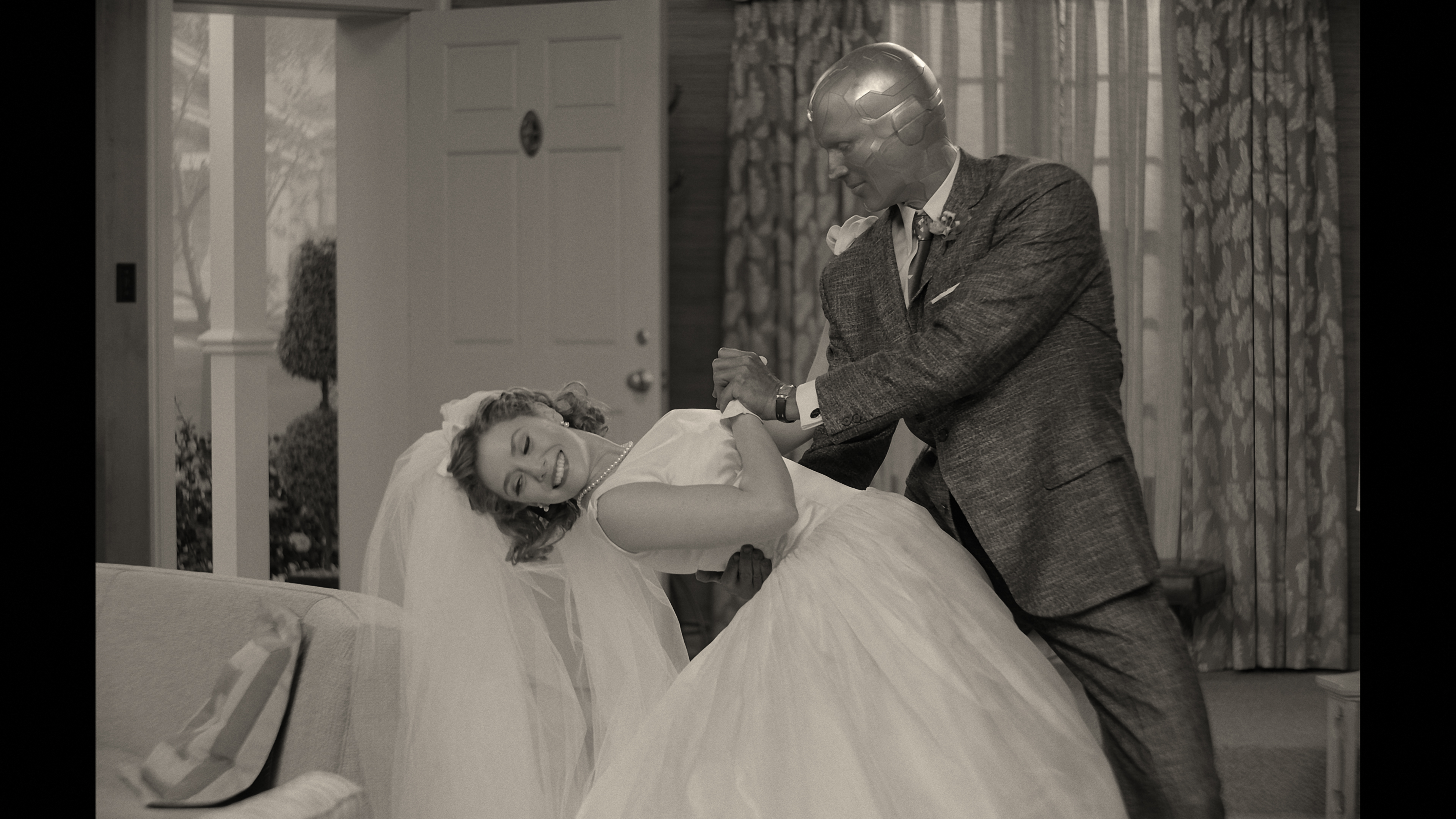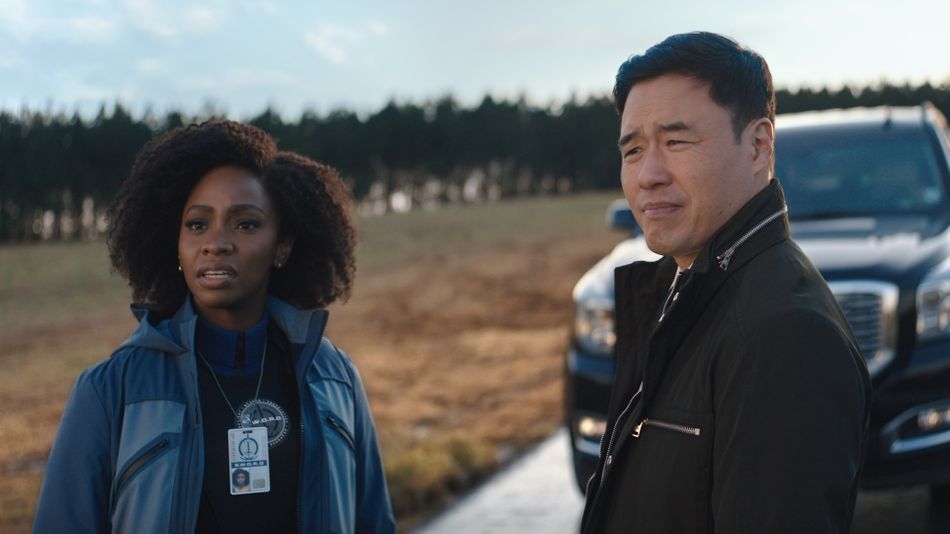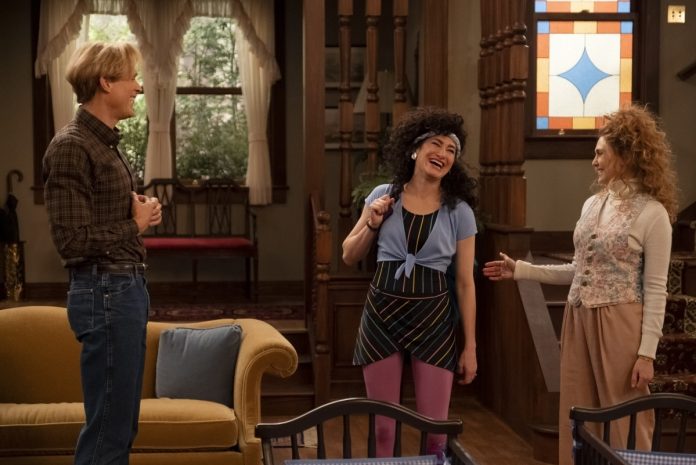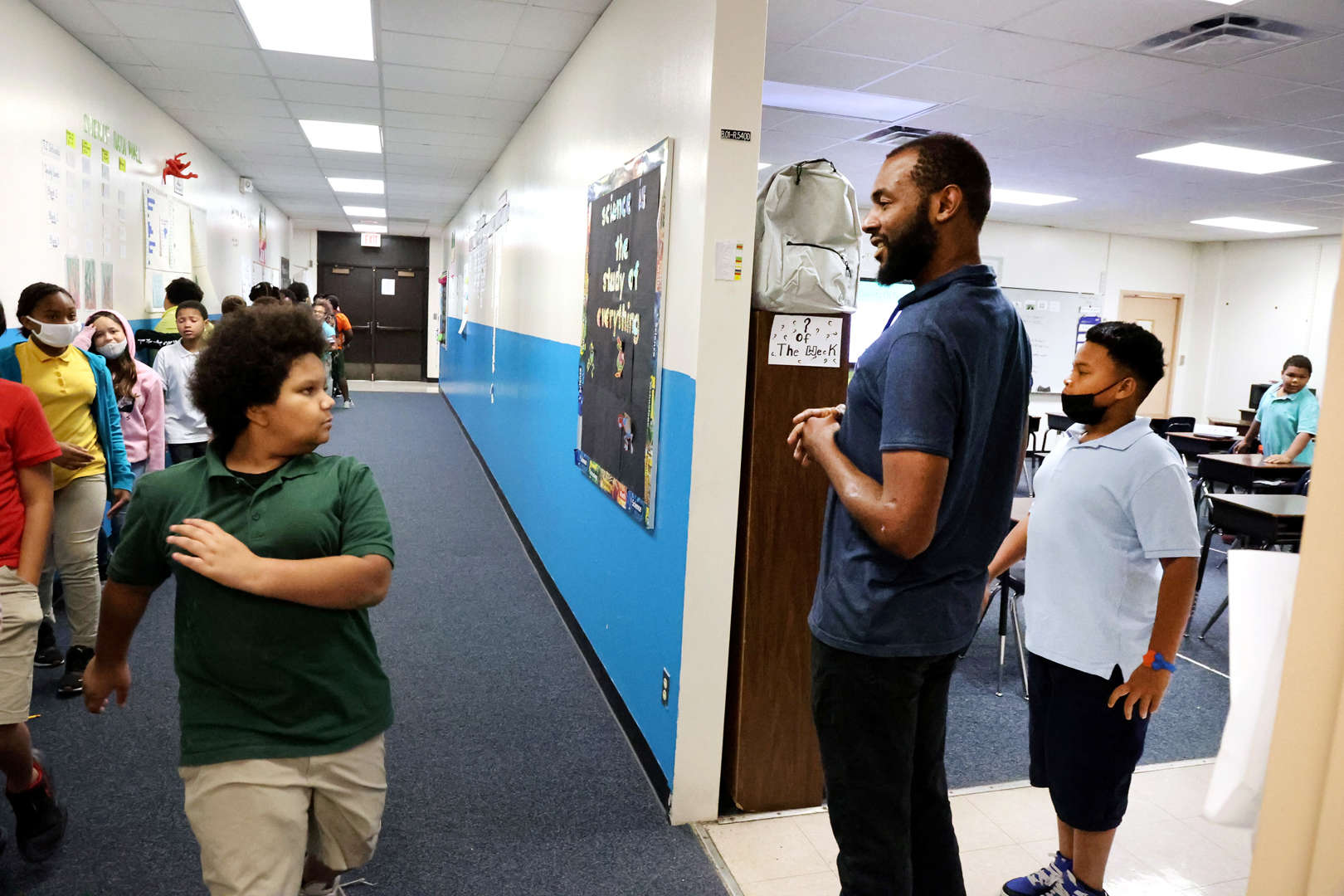
‘WandaVision’ Lives Inside TV. Just Like We Do.
“After a year of pandemic life, the superhero show’s inventive premise - television as both escape and prison - is all too relatable.” James Poniewozik NY Times Article
The following is an excerpt of NY Times Article
Even allowing for the pop culture invincibility of anything Marvel, Disney+’s “WandaVision” is an odd sort of superhero show to become a phenomenon. Why, of all the comic-book premises, would America in 2021 be captivated by a story about someone escaping inside classic TV as a refuge from trauma?
Maybe, in part, because that’s where we live. When “WandaVision” releases its finale March 5 on Disney+, it will have been roughly a year since the pandemic suspended our lives’ usual programming. For longer than even the most tube-addicted would care for, we have spent our days — not unlike the denizens of Westview, N.J. — inside television.
In early 2021, a streaming series about television as both escape and prison is practically a documentary. “WandaVision,” a pleasantly weird ornament on the narrative megalith of the Marvel Cinematic Universe, is TV’s latest diversion from the pandemic and perhaps its best metaphor.
It is also a meta feast for pop culture scrutinizers, a mash-up of two American mass-culture mythologies. It smushes the chocolate of superherodom into the peanut butter of feel-good sitcoms, making for two great empty-calorie tastes that, together, add up to a balanced meal.
The series opens with Wanda Maximoff (Elizabeth Olsen), a.k.a. the Avengers’ Scarlet Witch, keeping house with the cyberbeing Vision (Paul Bettany) in what appears to be a spot-on black-and-white rendition of a 1950s domestic sitcom, complete with a scrunched 4:3 aspect ratio, canned laughs and a zany dinner-with-the-boss story line.
Wanda’s particular predicament, hiding her magical powers from her ordinary neighbors, seems more the stuff of a 1960s fabulist comedy, à la “Bewitched.” And in Episode 2, that’s just what “WandaVision” becomes, with no explanation, but with a gathering sense that not all is right in this made-for-TV world.
How “WandaVision” reveals what it really is, week by week and decade by decade, is the show’s biggest surprise.
Spoilers!
If not: Wanda and Vision’s sitcom bliss is indeed an illusion. Vision is dead (as dead as an android can be), killed in an earlier “Avengers” movie. Westview, N.J., their stage set, is a real town, its reality magically warped and its residents mind-wiped to maintain a fantasy of prime-time domesticity — down to a pair of twin boys, who are born and grow in time-lapse TV fashion.
The early read on “WandaVision” was “sitcom parody.” It’s not very groundbreaking as that, since spoofs of sitcom clichés — on “Saturday Night Live,” “In Living Color,” “Mad TV” — have been around so long that they’re clichés in themselves.
Fortunately, “WandaVision” is more than parody. It excels first as bittersweet romance and second as horror, playing off our dual relationship with family sitcoms: that we return to them as a place of familiarity and comfort, even as we know that they’re uncanny and false.
Technically, the mimicry is astonishing, from the swanky midcentury set design to the comic-misunderstanding subplots to the period-appropriate fake ads. (“Forget the past — this is your future!” promises a toaster ad in the first episode, a bit of Space Age pitchmanship that also hints at the amnesiac nature of Wanda’s reality.) The tiniest details are there, like the handheld-camera push-ins on the handheld-camera comedies of the aughts.
In a few quick strokes, “WandaVision” is a remarkably compact tour of sitcom history: black-and-white to color, multi- to single-cam, sincerity to special episodes to snark. I could quibble here and there. (If you think of “Malcolm in the Middle” as just an anarchic kids’ romp, you’re forgetting it was one of TV’s better sitcoms about living paycheck-to-paycheck.) But the whole suggests that the creative team’s childhood hours in front of the tube were gainfully wasted.
Wanda stays one step of her anguished reality by trying on different versions of meticulously scripted happiness — in a prime-time genre, the family sitcom, that made women central since TV’s earliest days.
Olsen is a comic chameleon in the role. Her “I Love Lucy”-era housewife is a glowing orb of screwball energy; in a “Modern Family”-like mockumentary, she seems possessed by the spirit of Julie Bowen. Bettany is more of an odd fit — he’s two TV conventions in one, the straight man and the secret alien — but plays both aspects of the role gamely while selling Vision’s slowly dawning unease.
The show’s engine, though, is Kathryn Hahn as Agnes, the couple’s nosy neighbor throughout the decades who is revealed in Episode 7 to be Agatha Harkness, an ancient mystic and the true force behind Westview’s transformation into a rolling sitcom tribute. Hahn revels in every part of the role, morphing from plaid-skirted busybody to bawdy Jazzercise queen to cackling Disney villain.
It’s the perfect disguise. What, after all, is a sitcom wacky neighbor but the id of the show, its chaos agent? She is the one who can be snarky where it is sweet, libidinous where it is chaste, expressive where it is repressed. She is the perpetrator of the sitcom’s inside job, the surrogate through which we can acknowledge its overperfection while still enjoying it.
As that perfect world frays and fritzes around the edges, the horror of “WandaVision” works its way in. Like most good scares, this too rings familiar. The sunny perfection of family comedies always skates just this side of terror. The feeling that it’s all too flawless, that TV’s set dressing must be papering over nightmares, has powered everything from “The Truman Show” to “Pleasantville”

In the show’s meta-story, the goings-on in Westview are being investigated by S.W.O.R.D., the paranormal-activities body whose agent Monica Rambeau (Teyonah Parris) manages to enter and penetrate Wanda’s “show.” In S.W.O.R.D.-world, the M.C.U. aesthetic reigns, with its neutral palette and its mathematically fixed serious-talk-to-wisecrack ratio.
Seven episodes in, I don’t know any better than you do where “WandaVision” will end. But the larger M.C.U.’s imperatives loom in the background like a battleship-gray helicarrier. Somehow, one suspects, the bubble must be pierced, the relentless normal of the Marvel-verse must be reset for the next airdrop of content.
But “WandaVision” has been fun while it’s lasted, turning what could have been a one-joke spoof into something both chilling and relatable. How many of us, spending the past year in our own bubbles, beat a retreat to the virtual comforts of Stars Hollow or Dunder Mifflin? Out there, in the real world, things are sad and cold and wrong. Inside the four corners of the screen, we’re home again.
WandaVision Just Pulled Out a Few Shockingly Big Guns
On Episode 5

WandaVision hit a major turning point last week when it showed the state of the larger Marvel Cinematic Universe outside of Westview, New Jersey by looking back on how Monica Rambeau (Teyonah Paris), Darcy Lewis (Kat Dennings), and Jimmy Woo (Randall Park) all came to be involved in the situation. This week’s “On A Very Special Episode” reaffirmed the Disney+ series isn’t going to be letting up anytime soon.


